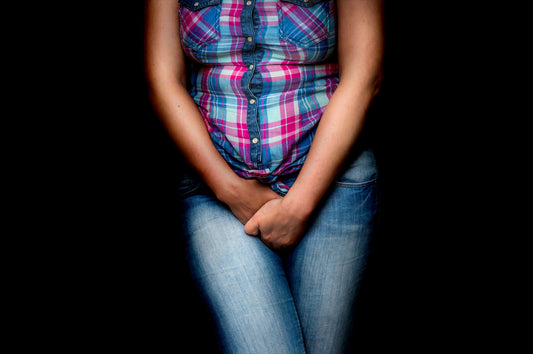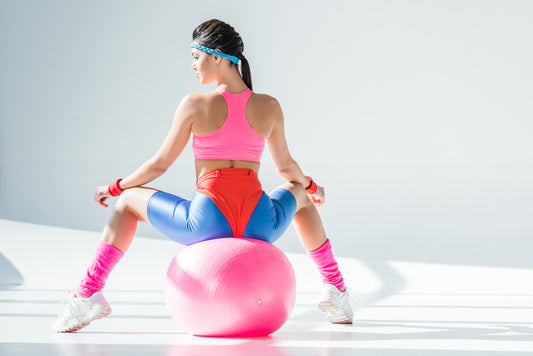Let me tell you — menopause doesn’t make you any less of a woman, though sometimes it might feel that way because of all the challenges it brings.
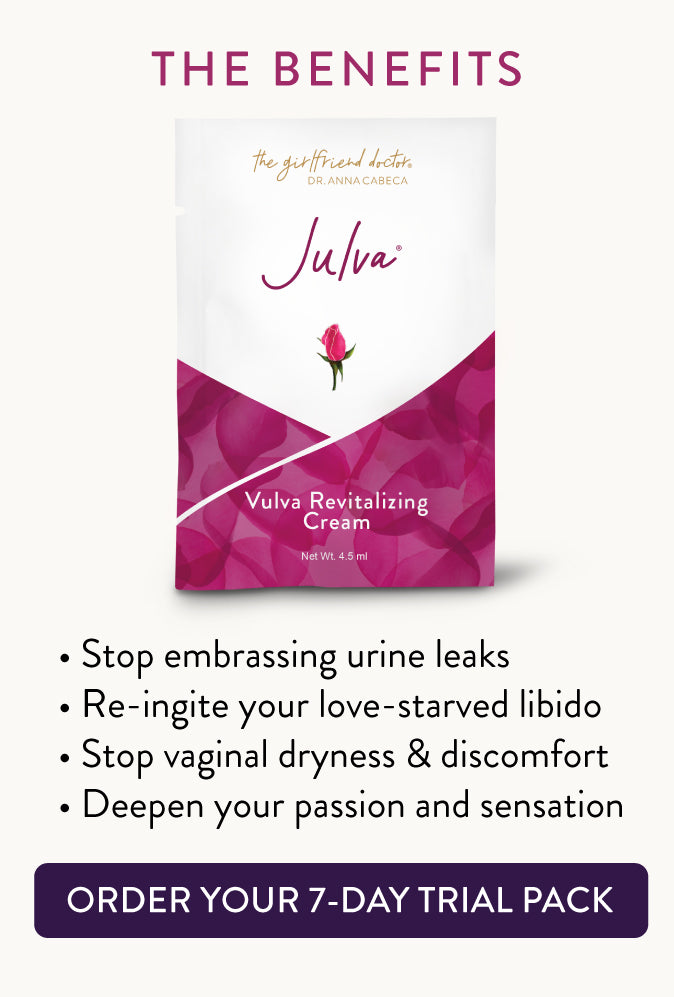
I’ve talked about so many menopausal symptoms and solutions, but it never tires me to hear your stories. Every one of them matters. In this article, I want to talk about another common menopausal symptom, one that is right up there with hot flashes and can cause just as much embarrassment, maybe even more.
I want to talk about incontinence, also known as a leaky bladder. It doesn’t only cause us to lose our feminine confidence and daily comfort, but also negatively impacts our sexual relationships. Nothing gets us feeling “old” quicker than having to wear pads so we don’t soil our pants.
But it doesn't have to be that way. I'll show you 3 natural ways of reducing or even healing incontinence entirely. And yes, when I say natural that means no drugs or surgery.
What Is Incontinence?
Basically, incontinence is the involuntary loss of one’s bladder control. It happens to an estimated 20 million people in the US who are going through menopause.
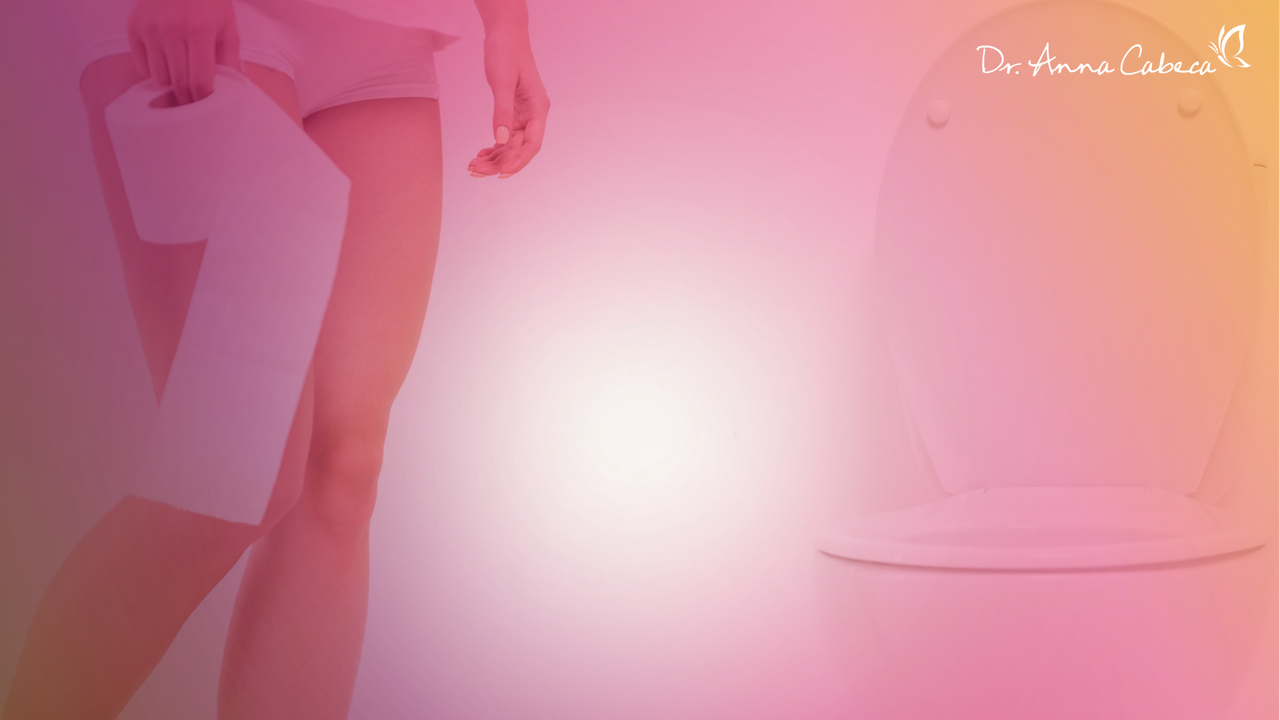
The four most common types of incontinence are:
Stress Incontinence (Stress Urinary Incontinence or SUI)
Stress incontinence is one of the more common expressions of a leaky bladder. It’s the tiny bit of urine that might involuntarily flow out when you laugh, cough or sneeze. Sometimes the stress of lifting something heavy or squatting might also cause leakage.
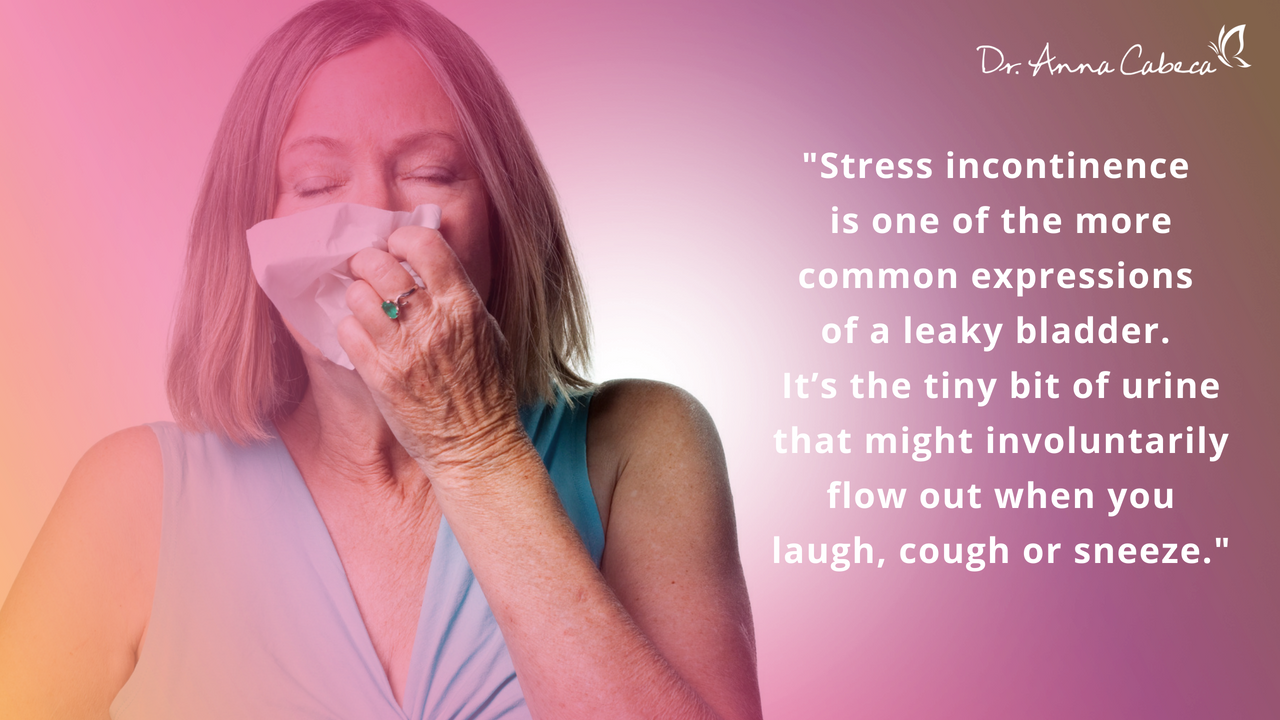
A lot of women experience this when they do their favorite sport or workout. Many women (or men) end up wearing pads, for this reason, you never know when you might drip.
Urge Incontinence a.k.a. Overactive Bladder
An “overactive” bladder may mean you are constantly in need of the nearest bathroom. The need for you to urinate may come on very quickly and unexpectedly. When you gotta go, you gotta go.
Nocturia
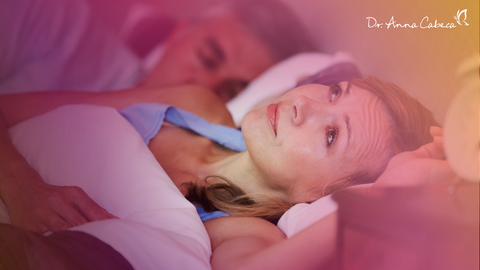
Ever wonder why your grandparents need to use the toilet so many times during the night? Well, it’s because of Nocturia. This is the need to get up in the middle of the night with an urge to pee, even if you might not be able to pee once you get to the toilet!
Post-Void Dribbling
Sometimes you think you’ve emptied your bladder, but unfortunately, as you stand up, there is a trail after you! No, you weren’t impatient, it’s just that your bladder isn’t emptying completely.
When it hurts to pee
While this isn’t incontinence, painful urination is not something you should overlook. A burning sensation when urinating is likely caused by a urinary tract infection that may lead to difficulties relating to leakage. It can also be from the dry or irritated skin around the urethra. Either way, get this checked out!
What Causes Incontinence?
It occurs primarily due to five things:
- Dietary issues
- Pregnancy and childbirth
- Genetic makeup
- Natural hormonal decline that occurs as we age
- Our lifestyle choices and overall health
Dietary Issues
Yes, food plays a big part in whether we live comfortable lives or not, especially when we get older. Certain drinks can worsen incontinence, such as caffeine, carbonated drinks, and alcohol. Spicy foods are on this list, too. Cutting or reducing these things can make a huge difference in your quality of life.
Food allergies can also be a cause for incontinence. So keep an eye out to see if your allergies are causing symptoms of an overactive bladder or any other type of incontinence.
Pregnancy And Childbirth
As an OB/GYN, I delivered over 500 babies and have had four of my own! Based on my research, frequent pregnancy and childbirth can create wear and tear down there as you age — especially in women over 40 having children.
And don’t think that opting for a Cesarean birth will make a difference. There is only a 20% protective factor after the birth of your first child, any subsequent C-sections puts you on the same playing field as mothers who give birth vaginally. So don’t discount vaginal birth because you think it might help you avoid incontinence.
Genetic Makeup
Of course your genetic makeup also plays a part in whether or not you develop incontinence. Things like our collagen, our musculature and the way we’re designed — all of these components can make a difference.
Fortunately, we can influence how well we age – even down there!
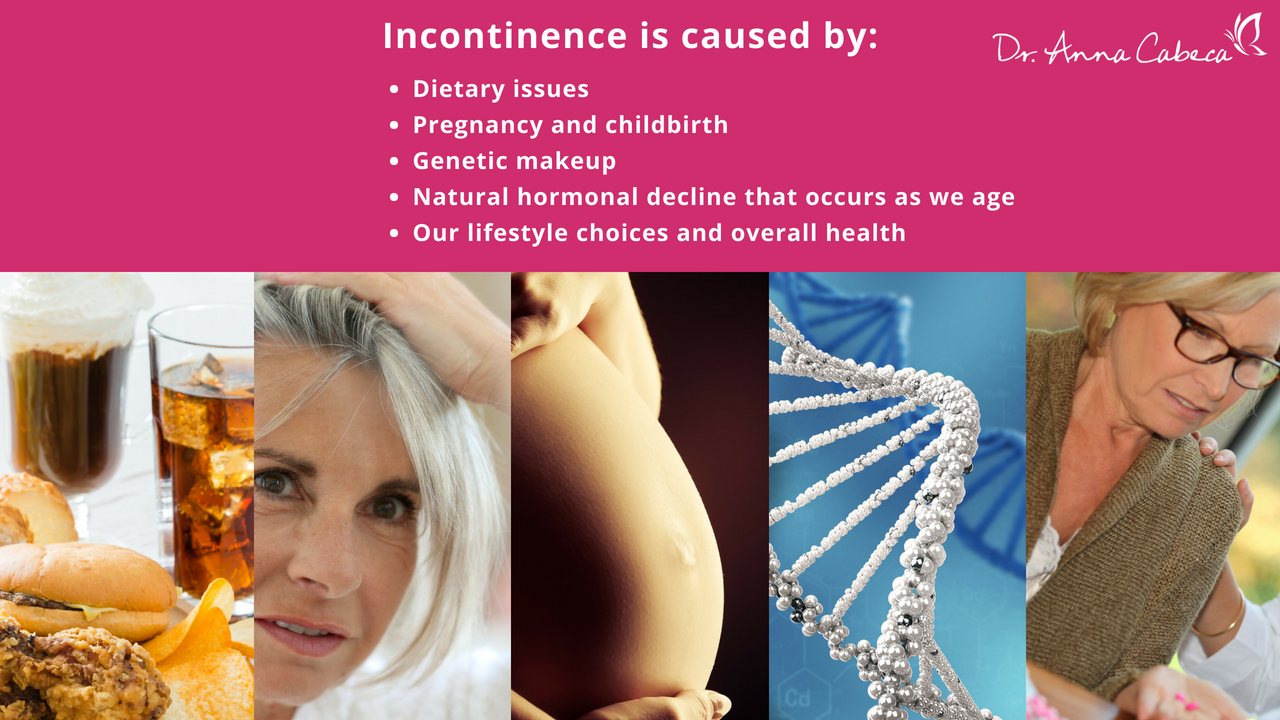
What Happens As Your Hormones Start To Decrease?
Our hormones naturally decrease as we age (for both men and women), and for women, this decrease is what leads to menopause. The thing is, hormone decline can also result in incontinence.
The decrease in your hormones leads to your vaginal tissue becoming thinner and less elastic. On top of that, your muscles start to weaken — including the pelvic floor muscles that help you control of your bladder. See the connection?
Your Lifestyle Choices Matter
Hormones may be the root cause but our lifestyle choices and overall health can influence our health outcome.
Yes, the choices you make do affect your health in the long run, even if you didn’t see the effect of your choices while you were making them.
What kind of lifestyle choices and overall health? If you’re on medication, if you’re obese, if you’re a smoker, or if you have other medical issues all can lead to urinary incontinence.
But, as you can see, at least some of these are the result of decisions YOU make!
How To Prevent And Heal A Leaky Bladder?
As a long time physician, I have always lived by the rule that doctors should have their patients use natural healing methods prior to invasive measures.
I've had so many stories of patients who come to me thinking they need surgery for an organ prolapse or incontinence. However, once I put them on natural hormones for a few weeks — as a part of a pre-surgery preparation — they noticed that they no longer need the surgery!
As I always say: DO THE NATURAL STUFF FIRST!
Below are some common treatments used to treat menopausal symptoms including urinary leakage:
Estrogen Therapy Or Hormone Replacement Therapy
While oral estrogen therapy can be helpful for hot flashes, it really hasn’t been found to significantly resolve incontinence. As a matter of fact, some studies have found that it has been associated with worsening urinary incontinence.
Estrogen Vaginal Tablets
While it might be helpful for other symptoms, vaginal tablets have also not been found to improve incontinence as it works on the top mucosal layer of the vaginal tissue and does not help the deeper musculature.
Prescription Medication
There are also prescription medications out there, especially for urge incontinence, but I prefer to find a more natural approach with no side effects. The only time I would recommend medication is if you’re suffering from Urinary Tract Infection. Make sure you talk to your doctor and get that treated. And then you can turn to more natural methods of prevention.
Nature’s Way
Now we come to my favorite part — the natural methods for reducing and even healing incontinence! Let’s get to my three top tips!
#1: Dietary Changes
This isn’t me trying to shame you about your weight. I truly believe we are beautiful whatever shape and size. But if your body is not bringing you comfort, then you have to make changes so that you live a healthy, comfortable life.
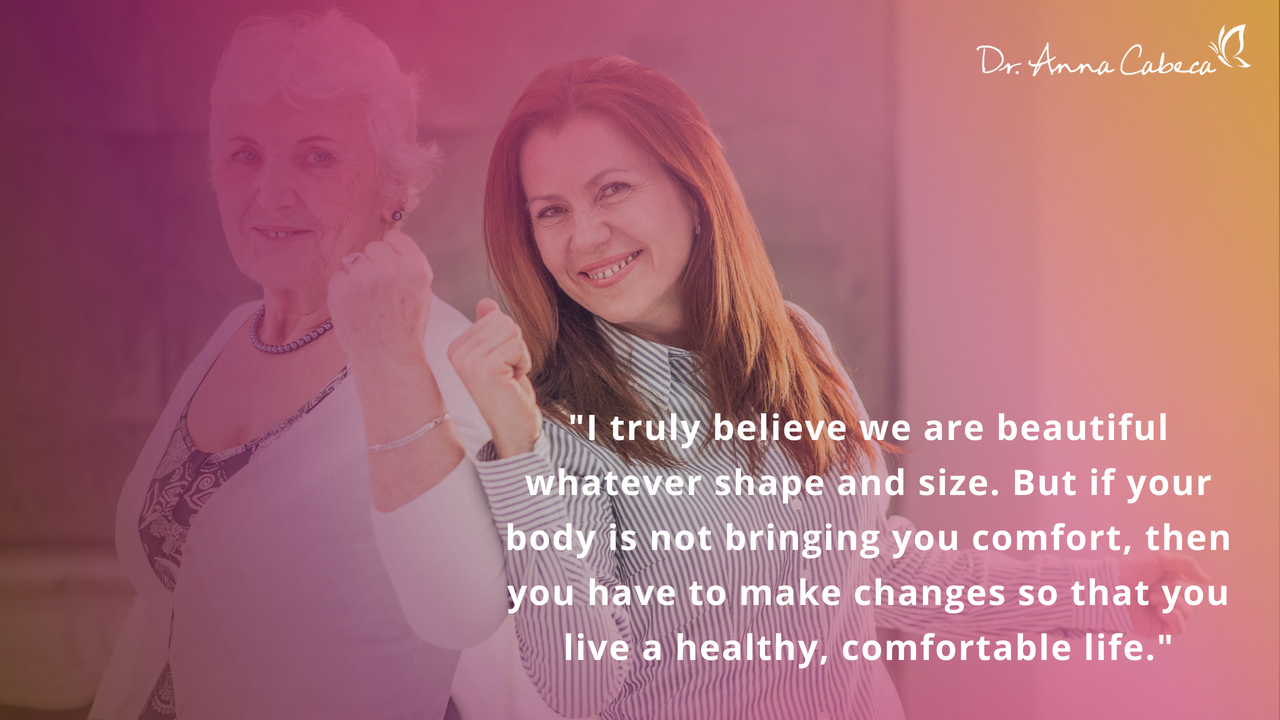
While menopause may bring about lots of feelings of “getting old” that doesn’t mean we’re at the end of our rope! So let’s make some changes shall we?
Change your eating habits. Educate yourself on nutrition. Cut out caffeine, carbonated drinks and alcohol. And spicy foods, too.
Personally, I highly recommend keto-alkaline® diet. If you get on a good keto-alkaline program you can maintain the healthiest weight for you.
#2: Kegel Exercises
Yes, as we age and our vaginal tissue becoming thinner and less elastic, things might feel a little loose down there. But kegel exercises help!
Kegel exercises strengthen the pelvic floor muscles and can improve symptoms of incontinence — as well as arousal and orgasm! It can also prevent or improve symptoms of pelvic organ prolapse, in which the uterus or bladder bulge into the vagina due to muscle weakness.
I also like to have women use jade balls, Lelo balls and kegel balls to strengthen their vaginal muscles.
#3: Locally Applied DHEA
DHEA is a natural bio-identical hormone that treats not only vaginal dryness and irritation but also boosts your mood and sex drive. It also improves the musculature of all three layers — the deeper layers — of the vagina. This increases the density of collagen fibers in the vaginal wall and stimulates the muscle layer.
For my patients, I wanted something that’s available over the counter... AND is 100% safe.
I couldn’t find one, so I created it.
Only The Best
This is how Julva® came to be.
Julva® is a vaginal cream that is perfect for the delicate tissue of the vulva because it only uses natural ingredients that are 100% safe for your body.
Apart from DHEA, it includes vitamin E, coconut oil, emu oil and shea butter.
It not only adresses symptoms like urinary leakage, vaginal dryness or discomfort but also helps you reclaim your libido and orgasms.
If you’d like to experience it for yourself, be my guest and try Julva® for a week, for free. Just pay a minimal cost for shipping for your 7-day trial pack. There’s no risk on you, and it’s ready to send out today.
It is my mission and my dream to get Julva® out to as many women as possible. So once you try it, please let me know how it makes you feel. And if you’re happy with it — let your friends know about it, too. We’re all in this together.
Meanwhile try out the tips above and let me know how it goes!

